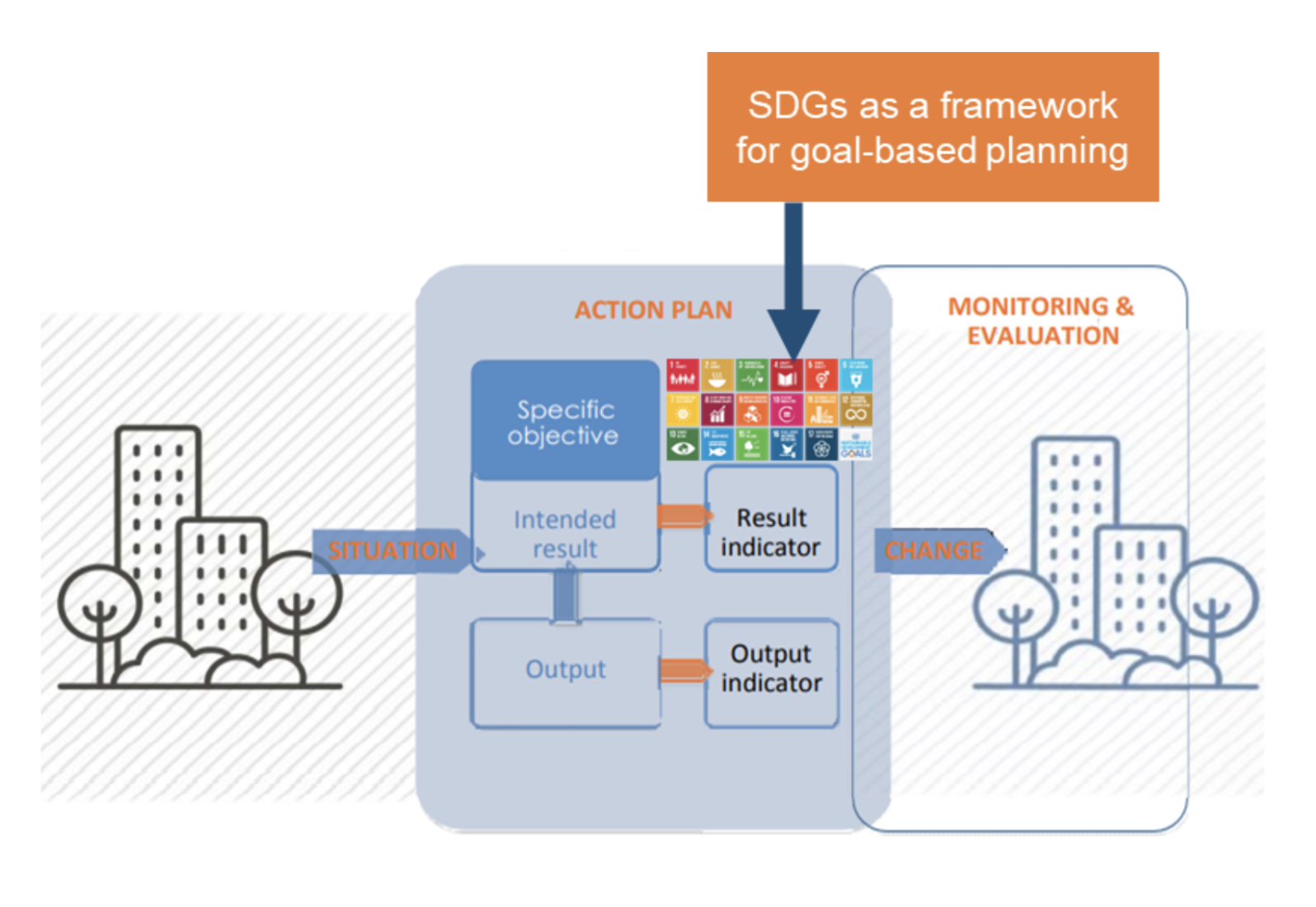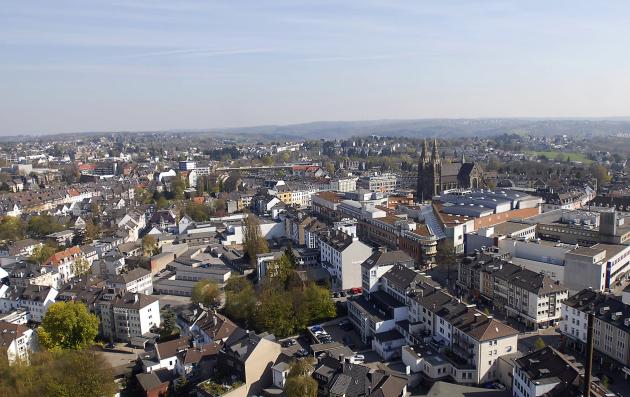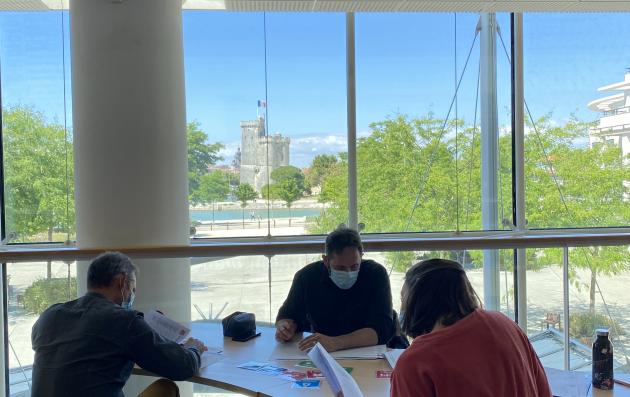Summary
Overview
Develop specific objectives and expected results that contribute to achieving the vision developed in the previous step, while linking these to the Sustainable Development Goals (SDGs). The SDG framework already provides a set of goals and targets for cities to work towards, however, primarily meant for national governments, the SDG targets need to be “localised”. This means making them relevant to the competences and priorities of local governments and stakeholders.
Defining objectives and intended results
The URBACT action-planning process is built around the “intervention logic”, where actions deliver outputs that contrubute to desired results linked to specific objectives (see image below). By way of example, a training delivered to 1 000 young people (an "output") can be designed to help get participants into new jobs and, hence, reduce the number of young people without a job (a "specific objective"). In turn, this should result in a lower local youth unemployment rate (the "intended result").
The SDG framework already provides a set of goals and targets to work with in an action-planning process. This means that we must link the intervention logic to the SDG framework, in other words, identifying relevant SDG targets that can be localised towards which the actions and outputs can contribute to a specific goal.
The image below shows how this fits into the intervention logic outlined in the URBACT Method (see page 9 of the Guide linked in the toolbox section below):

In the “Localise SDG targets” section, you will find the detailed process of localising the SDG targets in the action plan.
City cases




